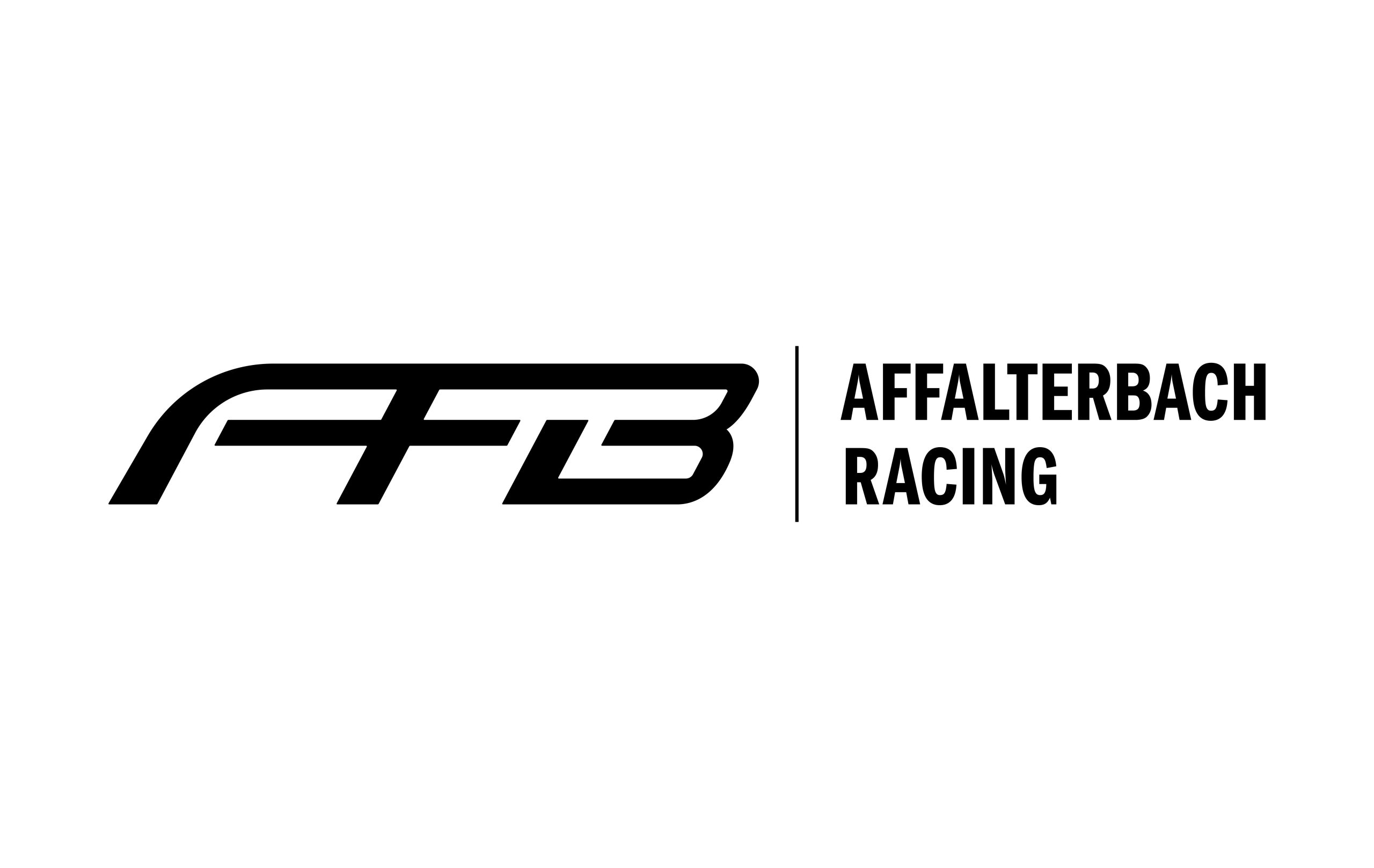How old do you have to be to lease a car?


Leasing a car has its own set of age requirements that one has to adhere to before applying for it. The legal minimum age requirement for Car Lease varies from region to region and country to country.
In some places, a person aged 18 or above can lease a car while in other regions, the minimum age limit could be higher. However, some leasing companies follow strict standards and may require an individual to be at least 21 years old to be eligible for car leasing.
Apart from age criteria, several other factors such as credit score, employment status and income level are evaluated before approving the car lease application.
It is crucial to research thoroughly about the various legal age requirements for car leasing in your area before applying for it. Failing to meet the required specifications could result in rejection of your lease application. So, plan accordingly and take informed decisions to avoid missing out on this opportunity.
Looks like getting a sweet ride on lease is yet another thing that comes with an age limit – sorry kiddos, you’ll have to settle for your tricycles for a while longer.
Age Restrictions for Car Leasing from Different Companies
When it comes to leasing a car, age restrictions are often in place from different companies. Here is a breakdown of the legal age requirements for car leasing, based on some of the top leasing companies.
Age Restrictions for Car Leasing from Different Companies:
| Company Name | Minimum Age Requirement |
|---|---|
| Enterprise | 21 years old |
| Hertz | 20 years old |
| Avis | 21 years old |
| Budget | 21 years old |
It’s worth noting that some companies may require a higher minimum age or charge higher fees for younger drivers. It’s always important to check with each specific company for their policies and requirements.
Did you know? According to Consumer Reports, drivers under the age of 25 typically face increased car rental rates and additional fees due to being considered higher-risk renters.
Trying to get your parents to cooperate with your car leasing plans is like trying to teach a cat to fetch, it’s not impossible, but it sure feels like it.
Parental Cooperation for Leasing a Car for Those Under Age Requirement
The legal age requirement for car leasing can pose a challenge for those who do not meet the criteria. However, parental cooperation can aid those under the required age to access car lease agreements. The involvement of parents or guardians in such deals makes it possible for them to guarantee payment and accept liability in case of an accident.
In addition, parents and guardians play an essential role in guiding their underage dependents on how to sustain and manage lease agreements. This guidance helps minors to comprehend the terms and conditions of the lease agreement adequately. Subsequently, this minimizes any cases of breach of contract that may occur due to insufficient knowledge.
It is imperative that parents ensure they understand their responsibilities while becoming involved in such agreements since they will become jointly responsible with their children. Additionally, they should discuss with dealerships or lending institutions about any potential risks and penalties associated with underage leasing during negotiations.
Pro Tip: Before signing any lease agreement, both parties must carefully scrutinize its terms, including fees and conditions about early termination, warranty coverage and timeframes making sure everyone understands all the details thoroughly before entering into an agreement.
Leasing a car is like a bad Tinder date – it’s all about impressing with your financial status and hoping for a long-term commitment.
Financial Requirements for Car Leasing
To meet the financial requirements for car leasing, you must be aware of specific income and credit score requirements. Additionally, if you fall under an age restriction, you may need a cosigner or guarantor to meet the financial obligations of the lease. This section will explain the benefits of both cosigning and having a guarantor for car leasing, as well as the income and credit score requirements for leasing a car.
Income and Credit Score Requirements for Leasing a Car
Leasing a Car: Financial Requirements You Must Meet
To be eligible for leasing a car, you must satisfy the financial requirements set by the leasing company. This includes showing proof of income and having a good credit score. Meeting these requirements helps the leasing company to assess your ability to make regular payments during the lease period.
Below is a table outlining the income and credit score requirements that most leasing companies look for in potential lessees:
| Requirements | Income | Credit Score |
|---|---|---|
| Minimum income per month | $1,500 | N/A |
| Debt-to-income ratio | <50% | N/A |
| Maximum number of delinquencies | N/A | <2 in past 2 years |
| Maximum number of open accounts | N/A | >3 |
Note that certain car models may require higher income or credit score levels.
It’s also important to pay attention to unique details like any extra fees or charges, which may include down payment, security deposit, acquisition fee, title and registration fees, and other costs.
Don’t miss out on a car you love due to failing financial requirements. Ensure your income is consistent and appropriate for your desired vehicle’s lease expectations as well as keep track of your credit score to meet eligibility requirements.
Get ready to become someone’s personal ATM, because cosigning for a car lease is like signing up for a never-ending payment plan.
Cosigning and Guarantor Requirements for Car Leasing for Those Under Age Restriction
When exploring car leasing as an underaged individual, it is essential to understand the cosigning and guarantor requirements set out by leasing companies. Below is a breakdown of these requirements for those under age restriction:
| Requirement | Description |
|---|---|
| Cosigner | The cosigner must be an adult with a good credit history who agrees to be responsible for the lease payments if the lessee defaults on payment. |
| Guarantor | The guarantor is similar to a cosigner but has less responsibility. The guarantor guarantees that the lessee will make all lease payments but does not have to pay if the lessee defaults. |
It is important to note that while both options require someone with good credit, a guarantor provides less protection for the leasing company as they are not liable for payment in case of default.
Additionally, some leasing companies may require proof of income or employment from both the lessee and cosigner/guarantor. Without meeting these requirements, leasing may not be possible.
When considering cosigning or finding a guarantor, it is crucial to ensure that they fully understand their responsibilities and potential risks involved.
Understanding the history behind these requirements can help shed some light on why they are in place. In the past, many young individuals defaulted on their lease payments due to lack of financial stability or poor money management skills. To protect themselves from losses, leasing companies implemented these requirements to ensure that someone with good credit and financial stability was involved in every lease agreement.
Before you take the lease, make sure you don’t end up with a car that’s more high maintenance than your ex.
Factors to Consider before Leasing a Car
To make an informed decision about leasing a car, you need to consider several factors. In order to navigate this process smoothly, understanding the terms and conditions of a car lease is crucial. Calculating the costs of car leasing, including upfront fees and monthly payments, is another important factor to consider. Additionally, it’s important to have an understanding of lease contract termination and the pros and cons of leasing versus buying a car.
Understanding the terms and conditions of a Car Lease
Before signing a car lease, it is crucial to thoroughly comprehend the lease agreement’s terms and conditions. This includes understanding the duration of the lease period, monthly payment obligations, fees and penalties for early termination or excessive wear and tear. Failing to understand these terms may lead to added costs or even legal consequences.
Delve deeper into the lease agreement by reviewing factors such as mileage limitations, required insurance coverage and maintenance responsibilities. Additionally, consider negotiating with the dealership to reduce costs and receive more favorable terms.
To ensure complete clarity and avoid costly mistakes, carefully read through the entire contract before signing. Don’t hesitate to seek professional advice from a lawyer or financial advisor if you’re unsure about any aspect of the lease agreement.
Don’t miss out on important details that could impact your financial well-being. With proper research and understanding of a car lease terms and conditions, you can save money and make an informed decision that meets your needs.
Leasing a car is like a bad relationship, you’re constantly calculating if the costs are worth it.
Calculating the costs of car leasing, including upfront fees and monthly payments
When considering car leasing, it is essential to calculate the expenses you will incur, including both upfront fees and monthly payments. Here are some factors to consider before signing a lease agreement.
To have a clear picture of the costs involved in car leasing, you need to create a table that outlines all the associated expenses. This table should include columns such as down payment, security deposit, taxes and registration fees, dealer fees, and monthly payments. For instance,
| Down Payment | Security Deposit | Taxes & Registration Fees | Dealer Fees | Monthly Payments |
|---|---|---|---|---|
| $2,000 | $500 | $800 | $300 | $200 |
Properly calculating these expenses can help you avoid being surprised by hidden costs.
Another critical factor to consider when leasing a car is the mileage allowance stated in the lease agreement. The allotted mileage can significantly impact your overall cost; exceeding it may lead to extra charges while, underutilizing it would result in loss of money.
Pro Tip: Always read the entire lease agreement’s fine print before signing anything as auto leases often involve complex terms and conditions that could affect your monthly payment or return conditions. Breaking up with your leased car is a lot like a bad relationship – sometimes it’s necessary to cut the contract and run.
Lease Contract Termination
When considering a lease agreement, it is important to understand the termination clauses. This includes early termination fees, damage charges and mileage restrictions. Additionally, one should check for any relevant state laws such as lemon laws that may offer protection in case of a defective vehicle.
It’s also essential to note that terminating a lease contract before its expiration can incur significant fees. These penalties are in place to protect the lessor from lost revenue and may include remaining payments as well as end-of-lease costs. One way to avoid these fees is through lease transfer where you find someone who takes over your lease payments and returns the vehicle at the end of the contract term.
Lease companies might have different policies on ending contracts; some might offer flexibility while others enforce harsh conditions. Therefore, it’s crucial that individuals carefully read through their lease agreements and comprehend what they’re signing up for before agreeing to it.
A friend of mine once learned the hard way about lease termination when they had to move out of state only six months into their car lease period. The leasing company charged them a hefty order amount equivalent to nine months’ worth of payments plus damage fees and cost of acquiring a new lessee.
Why buy the car when you can lease it and still have money left for gas…and therapy bills for when the lease is up?
Car Leasing vs Buying – Pros and Cons
Car Leasing and Buying analysis is crucial before making any purchase decision. Here are the essential factors you need to consider when deciding between leasing a car or buying one.
In the following table, we have laid out a comparison of Car Leasing and Buying from various angles:
| Factors | Leased Car | Owned Car |
|---|---|---|
| Upfront Cost | Low | High |
| Monthly Payment | Lower | Higher |
| Maintenance Costs | Included | Your Expense |
| Limitations | Mileage Limits | None |
| Ownership | No ownership | Own Asset |
It is important to note that the above factors can vary depending on individual circumstances, such as driving habits, financial stability, and personal preferences.
While leasing allows for lower upfront and monthly costs with included maintenance, it does come with limitations that could hinder certain lifestyles. On the other hand, owning a car offers more freedom but comes with higher financial costs.
According to Edmunds Research, “Car lease payments are generally lower than loan payments because they’re based on a car’s depreciation during the period of time someone is driving it.”
You’re never too young to lease a car, but you might want to hold off until you’re old enough to legally buy alcohol.
How to Lease a Car at a Young Age
To lease a car at a young age, with specific age and financial requirements in place, there are three solutions you can consider. First, we’ll take a look at tips to meet age and financial requirements for a car lease. Then, we’ll explore ways to build your credit score to secure a better lease deal. Lastly, we’ll discuss lease takeover options for those who do not meet the age requirement for leasing a car.
Tips to Fulfill Age and Financial Requirements for Car Leasing
Are you looking to lease a car at a young age? Here are some effective strategies to meet the age and financial requirements and get behind the wheel of your dream car.
- Boost Your Credit Score: To qualify for a car lease, maintaining a good credit score is essential. Focus on paying off debts, avoiding late payments, and limiting new credit inquiries.
- Get a Cosigner: If you have not yet established sufficient credit history, consider finding a cosigner with stable income and creditworthiness to help secure the lease.
- Choose the Right Car: Opt for small or midsize cars instead of high-end luxury vehicles. These cars are relatively cheaper, allowing for an easier time meeting financial requirements.
Remember that every leasing company has its unique age and financial requirements in place. Therefore, researching different companies’ policies can provide insight into affordable options before committing to an agreement.
Lastly, communicate openly with the leasing company regarding your circumstances and affordability. Negotiating terms can lead to more favorable monthly payments or lower upfront costs-achievable when both parties meet at a reasonable point.
Building your credit score is like building a savings account, except you don’t actually get to see the money.
Ways to Build Credit Score for a Better Lease Deal
Looking to increase your chances of landing a better lease deal on a car at a young age? Here are several effective ways to build your credit score, which can ultimately help you secure a more attractive lease.
- Make sure all debt payments are made on time.
- Keep your credit card balance low and make regular payments to pay it off in full each month if possible.
- Don’t apply for too much credit at once, as this can negatively impact your score.
- Check your credit reports regularly for errors or inaccuracies, which can be disputed with the credit bureaus.
- Avoid closing old accounts, as this can shorten the length of your credit history and hurt your score.
It’s important to note that building up a strong credit score doesn’t happen overnight. However, the above steps can help set you on the right path towards achieving a higher score and ultimately getting the best possible lease deal.
One additional tip is to consider finding a co-signer with good credit when signing a lease agreement. This may help improve your chances of approval and securing more favorable terms.
Many young adults have successfully built up their credit scores over time by following similar strategies. It takes effort and patience but rest assured that increased financial freedom and flexibility await those who make it a priority.
Oh, you’re not old enough to lease a car? No problem, just take over someone else’s lease like a responsible adult.
Lease Takeover Options for Those Under Age Requirement
For those who do not meet the age requirement for leasing a car, there are alternative Lease Takeover Options that can be explored. These include transfer of lease from an existing owner, subleasing or assuming a lease from someone willing to assign it.
Assuming a lease is one of the best alternatives for anyone looking for an affordable way to drive a car while they wait to meet age restrictions. The process involves finding someone whose leases matches your preferred make and model, negotiating the terms, and making arrangements with the new lessor.
While these options offer flexibility for young people who are yet to meet the traditional age requirements for leasing cars, there are specific details that must be taken into account before deciding. Some things to consider include an in-depth understanding of the terms and obligations that come with taking over another person’s lease.
For many young people looking to start driving leased cars at an earlier than usual age, these options present opportunities worth considering. By exploring all available alternatives, it is possible to find favorable deals and negotiate better terms with lessors. Don’t miss out on your chance; start exploring alternative leasing options today!
Leasing a car at a young age may not be the wisest financial decision, but hey, at least you’ll have a fancy ride to take you to your next bankruptcy hearing.
Conclusion and Recommendation for Car Leasing at a Young Age
Leasing a car at a young age requires several considerations.
- The legal age to lease a car varies among states and countries. However, many dealerships require a minimum age of 18 years old with a valid driver’s license and proof of income. It is recommended to have a good credit history, as it can affect the interest rate and monthly payments. Moreover, choosing the right car model and lease duration can also impact the overall cost. Therefore, it is important to research and compare leasing options before signing any agreement.
- Another vital aspect to consider when leasing a car at a young age is insurance coverage. Insurance premiums are typically higher for younger drivers due to their lack of driving experience and increased risk of accidents. This can significantly increase overall costs unless you shop around for affordable insurance options.
- Lastly, it is important to understand that leasing a car at a young age can also lead to financial commitments and long-term obligations beyond the lease agreement period, potentially impacting future credit scores.
In 1966, Ford was the first manufacturer to introduce leasing programs in the US market aimed at low-cost monthly payments options for customers who cannot afford standard financing. Since then, leasing has become an attractive option for millions of consumers worldwide looking for flexible payment plans without committing to long-term vehicle ownership.
How old do you have to be to lease a car? – Frequently Asked Questions
Q: How old do I have to be to lease a car?
A: The minimum age requirement for leasing a car varies by state and leasing company. Generally, you must be at least 18 years old and have a valid driver’s license.
Q: Can I lease a car if I am under 18 years old?
A: No, leasing a car requires that you are of legal age. If you are under 18, you may be able to have a parent or legal guardian lease the car on your behalf.
Q: Can I lease a car if I am a college student?
A: Yes, many leasing companies offer special programs for college students. However, you may need to provide proof of income or have a co-signer.
Q: Do I need to have a credit history to lease a car?
A: Yes, leasing a car requires a credit check. If you don’t have any credit history, you may need to provide a co-signer or pay a higher security deposit.
Q: Can I lease a car if I have bad credit?
A: It may be more difficult to lease a car with bad credit, but it’s not impossible. Some leasing companies may require a higher security deposit or a co-signer with good credit.
Q: Are there any age restrictions for leasing a luxury car?
A: Yes, some leasing companies require that you are at least 25 years old to lease a luxury car. However, age requirements can vary by company and state.










